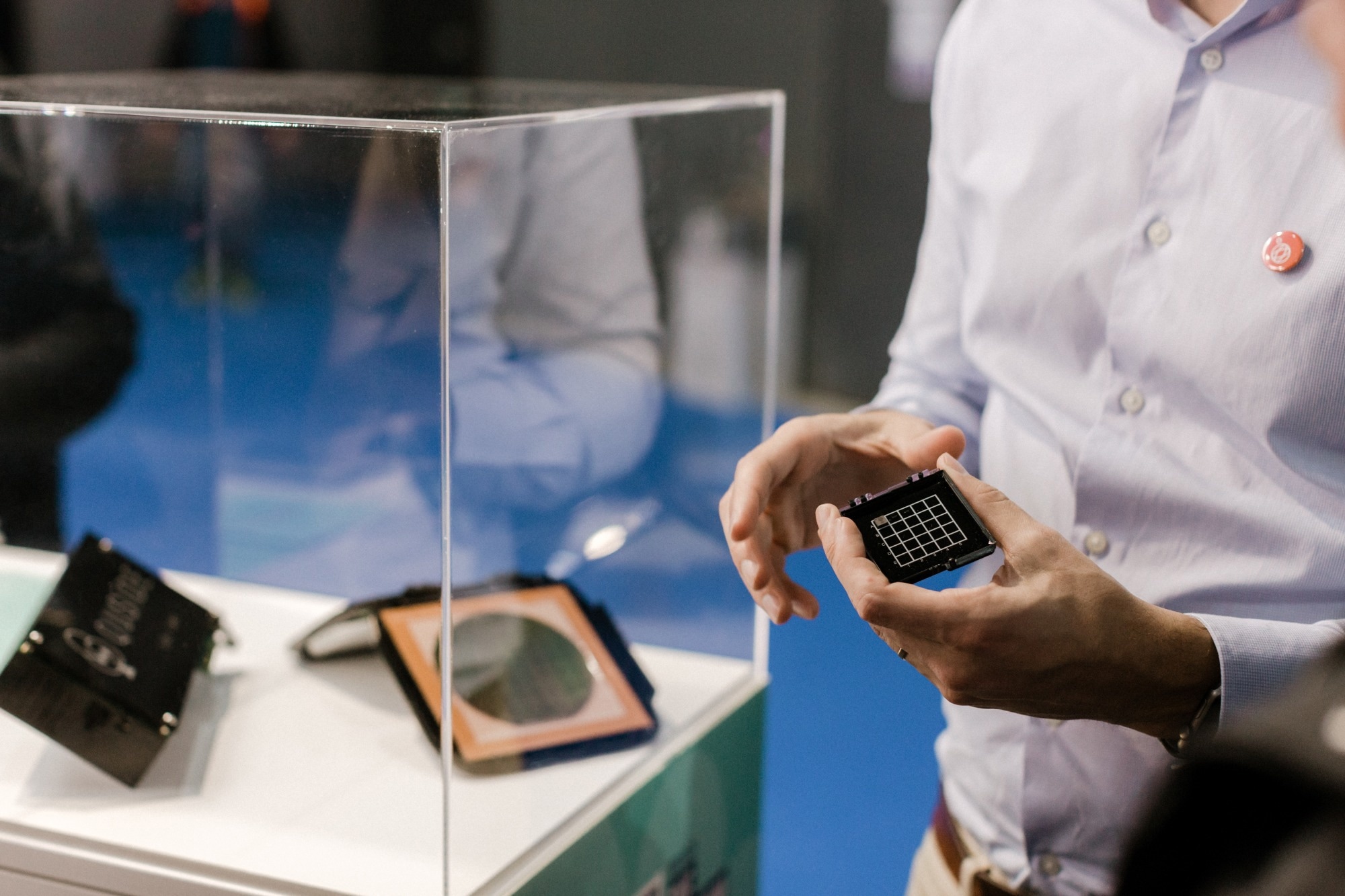
Image Credit: Quantum Flagship
Among the exhibitors was LuxQuanta, an ICFO spin-off which is working on providing unrivalled security and defences to conventional communication infrastructures with quantum cryptography. The LuxQuanta team revealed their first product, the “NOVA LQ™” system – a Continuous Variable Quantum Key Distribution (CV-QKD) solution for intra-city networks.
Vanesa Diaz, CEO of LuxQuanta, said: “This first system is the materialisation of over five years of research and development. Both our organisation and our product were born in response to an exponential rise in demand for Quantum Cryptography systems.”
Another exhibitor, Quside, revealed its Randomness Processing Unit (RPU), a first-of-its-kind quantum random number generator (QRNG) device designed to provide unrivalled encryption and decryption for applications that need high levels of security, such as online banking and e-commerce.
Carlos Abellan, Co-founder and CEO of Quside said: "We're excited to showcase the world's first RPU at this year's Mobile World Congress. The compute acceleration capabilities of this groundbreaking product have endless use cases in industries such as finance and mobile networks. We couldn't think of a better place to debut this innovation than at MWC, and we'd like to express our sincere gratitude to the Quantum Flagship for providing us with this opportunity." With its RPU, the team is currently providing a suite of solutions to a number of clients from industry and academia.
Spotlight on Quantum
The conference, which took place at the Fira de Barcelona convention centre in Barcelona, drew in more than 61,000 attendees from 168 countries across the globe.
During his visit, European Commissioner for the Internal Market, Thierry Breton, shared his enthusiasm for the future of connectivity in a tweet: “Inspiring visit of the European Quantum Flagship initiative — with first tangible results of research & #innovation activities funded by Horizon 2020 and Horizon Europe EU funding programmes.”
Philippe Grangier, head of the Quantum Optic Group at the Institut d’Optique said: “From the recent Cluster Review Report on the achievements of the first phase of the European Quantum Flagship, it appears clearly that Quantum Technologies are undergoing a spectacular development at the European level. With more than 25 new startups involved, as well as large companies, and the emergence of new Europe-wide actions such as the Digital Europe Program, or the Chips Act, Europe is on the move, and the Year of the Quantum may come soon.”
South Europe’s New Quantum Computer
The European Commission's strong investment in quantum computing is bearing fruits with the announcement of a new quantum computer to be launched in southern Europe at the Barcelona Supercomputing Center (BSC)-Red Nacional de Supercomputación later this year.
In addition, with funds from the European Recovery Plan from the EuroQCS Joint Undertaking program, BSC plans to install a second quantum computer, making Barcelona a significant quantum hub. The new quantum computers will complement the MareNostrum 5 supercomputer, the most powerful in Spain and among the most advanced in the world.
Victor Canivell, Co-founder and CEO of Qilimanjaro: “As the winner of the first BSC quantum computer tender together with the Spanish high-tech multinational GMV, Qilimanjaro intends to grow its footprint in the emerging quantum computing industry. Qilimanjaro works very closely with a network of other European startups in what is becoming a powerful quantum industry ecosystem”
The rise of quantum technologies in Europe is expected to impact the global economy significantly. Estimates from Yole Developpement suggest that the quantum technology market could be worth $2 trillion by 2030, with quantum computing reaching more than $4 billion by 2035.